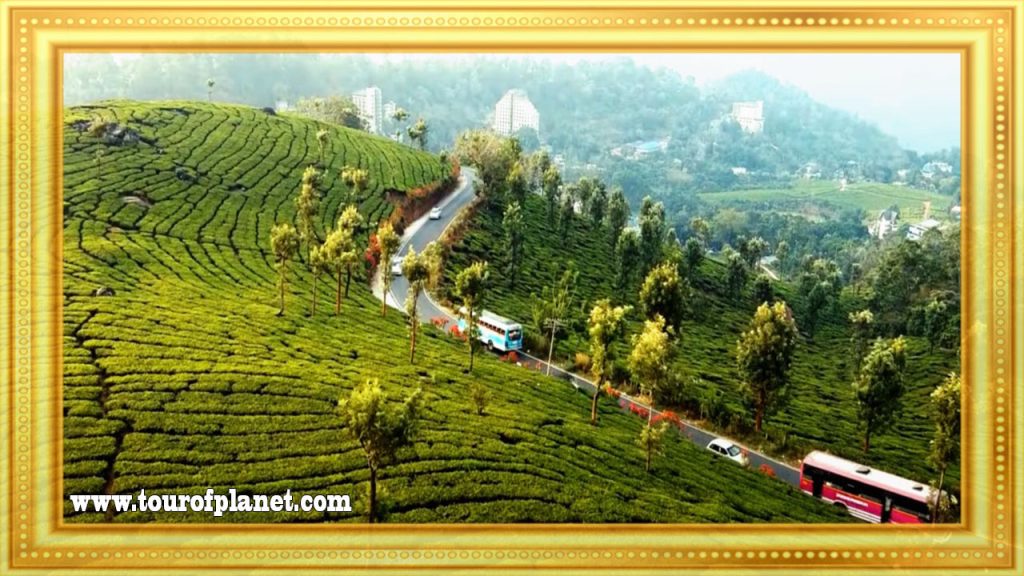Introduction
Travel has always been an integral part of human history. From ancient pilgrimages to modern-day tourism, people have always been on the move. However, the travel industry has gone through tremendous changes in the past few years. The pandemic has brought about unprecedented challenges for the industry, leading to a major shift in consumer behavior and expectations. In this blog post, we will explore the future of travel and the trends and predictions that are likely to shape the industry in the coming years.
The Rise of Sustainable Travel
One of the most significant trends that will shape the future of travel is sustainable tourism. As people become more aware of the impact of their actions on the environment, they are seeking ways to travel in a more responsible and sustainable manner. This trend is likely to continue in the coming years, with travelers opting for eco-friendly accommodations, carbon-neutral transportation, and green activities.
Sustainable travel: what it means
Sustainable travel refers to travel that is environmentally friendly, socially responsible, and economically sustainable. It is all about minimizing your impact on the environment and local communities while traveling. Sustainable travel can take many forms, such as using public transportation, staying in eco-friendly accommodations, and supporting local businesses.
Benefits of sustainable travel
Sustainable travel has many benefits, both for the traveler and the environment. Firstly, it helps reduce the carbon footprint caused by travel. Secondly, sustainable travel can have a positive impact on the local economy by supporting small businesses and communities. Thirdly, sustainable travel can lead to a more authentic travel experience by immersing travelers in the local culture and traditions.
Sustainable travel options
There are many sustainable travel options available to travelers. For example, travelers can opt to stay in eco-friendly accommodations such as hotels that use renewable energy sources or have green certifications. Travelers can also use public transportation or bike rentals instead of renting cars or taking taxis. Supporting local businesses and buying locally made products can also contribute to sustainable travel.
How travelers can make a difference
Travelers can make a difference by being mindful of their impact on the environment and local communities. By choosing sustainable travel options and supporting local businesses, travelers can minimize their carbon footprint and have a positive impact on the local economy. Travelers can also participate in eco-tourism activities such as beach cleanups or wildlife conservation efforts.
The Advent of Space Tourism
Space tourism has been a topic of discussion for many years, but it is only now becoming a reality. Several companies, such as SpaceX and Blue Origin, are working towards making space tourism a viable option for travelers. While it may still be a few years before the average person can afford to take a trip to space, it is an exciting development that is likely to shape the future of travel.
What is space tourism?
Space tourism refers to the concept of offering civilians the opportunity to travel to space for recreational purposes. The first space tourist was Dennis Tito, who paid $20 million to travel to the International Space Station in 2001. Since then, several companies such as Virgin Galactic and Blue Origin have emerged, offering suborbital flights to civilians.
The benefits of space tourism
Space tourism offers a range of benefits, both to individuals and to society as a whole. It allows individuals to experience something unique and exhilarating, and to view the Earth from a new perspective. It also has the potential to inspire the next generation of scientists, engineers, and astronauts.
From a societal perspective, space tourism can provide a new source of revenue and employment opportunities. It can also drive innovation and technological advancements, as companies compete to offer safer, cheaper, and more efficient methods of space travel.
The challenges of space tourism
Despite the potential benefits, space tourism also presents several challenges. Safety is a major concern, as space travel is inherently risky and can have severe consequences in case of accidents. Additionally, the environmental impact of space tourism needs to be carefully considered, as the rockets and spacecraft used for space travel can have a significant carbon footprint.
The future of space tourism
The future of space tourism looks promising, with several companies investing heavily in research and development. As technology improves, the cost of space travel is likely to decrease, making it more accessible to a wider range of people. This, in turn, is likely to increase demand for space tourism, leading to a further expansion of the industry.
The Emergence of Digital Nomads
The rise of technology has not only changed the way we communicate and work but also the way we travel. With the advent of digital nomads, travel is no longer confined to a vacation or a business trip. Instead, it has become a lifestyle for those who can work remotely. we will explore the future of travel with the emergence of digital nomads and the impact it is likely to have on the travel industry.
What are digital nomads?
Digital nomads are individuals who use technology to work remotely while traveling. They can work from anywhere with an internet connection, whether it’s a coffee shop in Paris or a beach in Bali. Digital nomads are often freelancers, entrepreneurs, or employees of companies that allow remote work.
The benefits of digital nomadism
Digital nomadism offers a range of benefits, both to individuals and to society as a whole. It allows individuals to have a better work-life balance, and to explore new cultures and experiences while still earning a living. It also provides new economic opportunities for countries that are popular destinations for digital nomads.
From a societal perspective, digital nomadism can also help to reduce traffic congestion and air pollution in urban areas, as fewer people need to commute to work.
The challenges of digital nomadism
Despite the benefits, digital nomadism also presents several challenges. One of the major challenges is social isolation, as digital nomads often work alone and may struggle to form meaningful relationships while on the move. Additionally, there may be legal and tax issues for digital nomads, as they may not have a fixed address or may be working in countries where they are not legally allowed to work.
The future of digital nomadism
The future of digital nomadism looks promising, with more and more companies offering remote work options and countries recognizing the economic benefits of attracting digital nomads. As technology continues to improve, it is likely that the number of digital nomads will continue to grow, leading to a new era of travel and work.
The Impact of Artificial Intelligence
Artificial Intelligence (AI) is likely to have a significant impact on the travel industry in the coming years. AI-powered chatbots, for example, can provide travelers with real-time assistance and recommendations, improving the overall customer experience. AI can also help travel companies optimize their operations, leading to cost savings and increased efficiency.
Personalized Travel Experience
One of the significant benefits of AI is the ability to create personalized travel experiences. By analyzing data such as travel history, preferences, and behavior patterns, AI can provide tailored recommendations for hotels, restaurants, and activities that match the traveler’s interests. This approach not only enhances the traveler’s experience but also helps travel companies to build stronger relationships with their customers.
Improved Efficiency
AI can also improve the efficiency of the travel industry by automating tasks that are currently performed manually. For example, chatbots can handle customer service inquiries, reducing the need for human agents. Additionally, AI can optimize schedules and routes, reducing travel times and improving on-time performance.
Enhanced Safety and Security
AI can enhance safety and security in the travel industry by analyzing data and identifying potential risks. For instance, AI can detect unusual patterns in credit card transactions, identifying fraudulent activity. Additionally, AI-powered security screening systems can identify potential threats and enhance the speed and accuracy of security checks.
Predictive Pricing
AI can also help to provide more accurate and dynamic pricing models, allowing travel companies to offer the best possible prices to customers. By analyzing data such as search history, demand, and availability, AI can predict pricing trends and adjust prices in real-time, ensuring that travelers receive the best possible value for their money.
The Importance of Health and Safety
The pandemic has made health and safety a top priority for travelers. In the future, travelers will likely continue to prioritize destinations and accommodations that prioritize their health and safety. This may lead to an increase in the use of contactless technology, such as self-check-in and mobile payments, as well as increased sanitation measures.
Enhanced Cleaning and Sanitization Protocols
One of the most significant changes brought about by the pandemic is the increased focus on cleaning and sanitization. In the future, we are likely to see enhanced cleaning and sanitization protocols across all aspects of travel, from airports and hotels to rental cars and public transportation. This will help to reduce the spread of not only COVID-19 but other infectious diseases as well.
Adoption of Contactless Technologies
Another trend that is likely to continue in the future of travel is the adoption of contactless technologies. From contactless check-ins to touchless payment options, contactless technologies reduce the need for physical contact and can help to limit the spread of disease. This includes the use of mobile boarding passes, self-check-in kiosks, and contactless payment methods.
Increased Focus on Health and Wellness
The pandemic has also brought about an increased focus on health and wellness. In the future, we are likely to see more travelers seeking out destinations and experiences that prioritize health and wellness. This includes destinations with outdoor activities, access to healthy food options, and wellness-focused accommodations.
Improved Air Quality
Air quality has also become a significant concern for travelers, particularly on airplanes. In the future, we may see improvements in air filtration systems on airplanes and increased focus on air quality in hotels and other accommodations.
Conclusion
The travel industry is constantly evolving, and the trends and predictions outlined in this blog post are just a few of the many developments that are likely to shape the future of travel. Sustainable tourism, space tourism, digital nomads, artificial intelligence, and health and safety are just a few of the trends to watch out for in the coming years. As the industry continues to evolve, it is important for travel companies to adapt and innovate to meet the changing needs and expectations of travelers.

